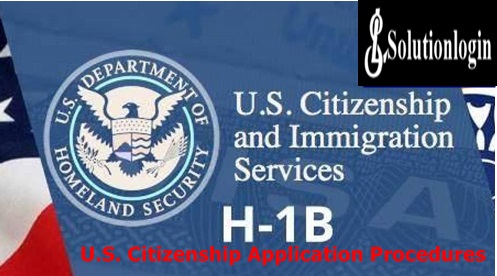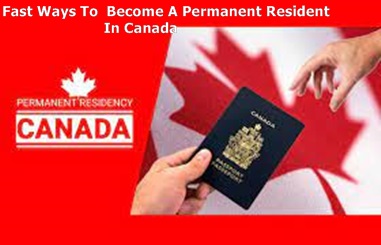U.S. Citizenship Application Procedures – Are you looking for a procedures to apply for U.S. Citizenship?. Learn the steps for becoming a U.S. citizen including how to apply, sample test questions and what is the naturalization process. Also, find information on dual citizenship, how to get proof of your U.S. citizenship if you were born abroad or replace your lost or stolen citizenship certificate.
U.S. Citizenship Application Procedures
Citizenship is a unique bond that unites people around civic ideals and a belief in the rights and freedoms guaranteed by the U.S. Constitution.
Deciding to become a U.S. citizen is one of the most important decisions an immigrant can make. Depending on your situation, there may be different ways to obtain citizenship.
- Naturalization is the process by which U.S. citizenship is granted to a lawful permanent resident after meeting the requirements established by Congress in the Immigration and Nationality Act (INA).
- Acquisition of citizenship is obtained through U.S. citizenship parents either at birth or after birth, but before the age of 18.
You can become U.S. Citizenship through the following;
- U.S. Citizenship through Naturalization
- Certificates of Citizenship and Naturalization
- Dual Citizenship or Nationality
- Establish Citizenship Without a Birth Certificate
- U.S. Citizenship for People Born Abroad or in U.S. Territories
Check Out >>>> US Student Visa Applications Commenced
1. U.S. Citizenship through Naturalization
Becoming a citizen through naturalization is a process in which a non-U.S. citizen voluntarily becomes an American citizen. U.S. citizens:
- Owe their allegiance to the United States
- Are entitled to its protection
- Should exercise their rights and responsibilities as citizens
- Review this visual overview (PDF, Download Adobe Reader) about the general naturalization process.
To become a U.S. citizen, you must:
- Have had a Permanent Resident (Green) Card for at least five years, or for at least three years if you’re filing as the spouse of a U.S. citizen.
- You must renew your Permanent Resident Card before applying for citizenship if:
A. Your card will expire within six months of applying, or
B. Your card has already expired
C. You can apply for naturalization before you receive your new Green Card. But, you’ll need to submit a photocopy of the receipt for your Form I-90, Application to Replace Permanent Resident Card, when you receive it.
Meet certain eligibility requirements. To see if you’re eligible, click on the link that is most similar to your situation. Some requirements may include being:
- At least 18 years old when you apply
- Able to read, write, and speak basic English
- Of good moral character
Go through the 10-step naturalization process which includes:
- Determining your eligibility to become an American citizen
- Completing form N-400, the application for naturalization, and creating a free account to submit your form online
- Taking the U.S. Naturalization Test and having a personal interview
Helpful Resources For Citizenship
Take the U.S. Naturalization Test
One of the requirements in the naturalization process is taking the U.S. Naturalization Test. The Naturalization Test has two components: a civics test and an English test.
Find study resources for the test.
- 100 Civics Questions and Answers for the 2008 Test (with MP3 audio)
- Civics Practice Test – Study tool to help you test your knowledge of U.S. history and government.
- Learn about the speaking, reading, and writing tests for the English portion of the test under Part D.
2. Certificates of Citizenship and Naturalization
Certificates of Citizenship and Naturalization are proof of your U.S. citizenship.
Get a Certificate of Citizenship or Certificate of Naturalization
Apply for a Certificate of Citizenship if:
- You were born abroad to U.S. citizen parents, and
- Your parents did not get a Consular Report of Birth Abroad for you before you turned 18.
Foreign nationals receive a Certificate of Naturalization when they become American citizens. Get certified copies of a Certificate of Naturalization.
Replace Your Citizenship or Naturalization Certificates
Replace your Certificate of Citizenship or Certificate of Naturalization if it was lost or stolen using form N-565.
If you have further questions, contact U.S. Citizenship and Immigration Services (USCIS).
3. Dual Citizenship or Nationality
Dual citizenship (or dual nationality) means a person may be a citizen of the United States and another country at the same time. U.S. law does not require a person to choose one citizenship or another.
If you’re a citizen of another country, contact that country’s embassy or consulate for information about its:
- Laws
- Policies
- Mandatory military service
- For information on dual nationality from the point of view of another country, contact that country’s embassy or consulate.
- If you have dual citizenship and plan to travel to or from the United States, you must use a U.S. passport to enter and leave the United States.
Information about giving up or losing your U.S. citizenship is also available.
A licensed attorney skilled in citizenship matters can assist you with questions about your situation. A local bar association can often provide a good referral.
Establish Citizenship Without a Birth Certificate
- If you were born in the U.S. and there is no birth certificate on file, you will need several different documents to prove your citizenship:
- A letter from the vital records office in your birth state with your name and what years they searched for your birth certificate.
A Letter of No Record from the vital records office. You will also need secondary evidence of U.S. citizenship to prove your birth in the United States. - If you were born outside the United States and your U.S. parent(s) did not register your birth at the U.S. Embassy or consulate, you may apply for a U.S. passport, but you will need:
- Your foreign birth record showing your parents’ names
Evidence of your parent(s) U.S. citizenship
Your parents’ marriage certificate - If you were born outside the U.S. and your U.S. parent(s) registered your birth with a U.S. Embassy, the U.S. Department of State (DOS) will be able to help you get a copy of a Consular Report of Birth Abroad (Form FS-240).
U.S. Citizenship for People Born Abroad or in U.S. Territories
You are a U.S. citizen if:
- You have a birth certificate issued by a U.S. state.
- You were born in a U.S. territory and have a birth certificate issued by that territory. If you don’t have a birth certificate from your birth territory, you may be able to verify your citizenship status using other documents.
- You were born outside of the U.S. to at least one U.S. citizen parent and your parent(s) recorded your birth with the U.S. Embassy or consulate in that country.
a. If your birth was recorded before your 18th birthday, the Embassy or consulate issued your parent(s) a document that is proof of your U.S. citizenship. This document is known as a Consular Report of Birth Abroad (CRBA or Form FS-240). Learn how to request copies, amendments, or corrections to a Consular Report of Birth Abroad from the U.S. Department of State (DOS).
b. If the Embassy or consulate did not issue a CRBA and you are 18 years of age or older, learn how to get a Certificate of Citizenship. This document proves your U.S. citizenship and can be obtained from U.S. Citizenship and Immigration Services (USCIS).






